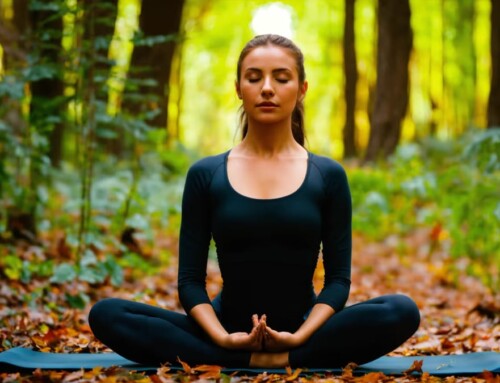Do you ever feel like all the air has been sucked right out of the room? If you do not have a health condition, such as asthma, emphysema, or a nasty respiratory infection, this may just be a sign that you need to catch your breath—and relax! In fact, many people report feeling shortness of breath, “not enough oxygen,” or like they have a difficult time getting air when they feel anxious, excited, or nervous. For some, these feelings can last all day. Some don’t even know they are struggling to breathe, but may wonder why it is so much easier to breathe during their visit to a massage therapy office in New Jersey. Read on to find out how breathing helps and tips to do it better!
Why Breathe?
We all know we need oxygen to live, but why pay attention to our breathing? Adults tend to be shallow “chest-breathers,” filling their lungs up partway, exhaling quickly, and sucking in another half-full load of air. But when your lungs expand completely, your body is better able to absorb the oxygen and spread it through your body. To re-capture the deep breathing that children and infants use, try this simple exercise: lying flat, such as in bed or on the couch, place a hand over the upper part of your stomach, just below your ribs. Take a deep breath. Does your hand rise, or does your chest? If your chest rises, but your hand and stomach remain still, you are not breathing deeply. Focus on making your stomach rise, watching your hand, and observe how much better you feel.
Breathing When Stressed
When people are stressed, even if they are usually deep breathers, they tend to hyperventilate. This happens when you breathe in too much and do not breathe out enough. Some people say they feel like they are drowning when they hyperventilate, and this is pretty accurate—that burn you feel in your lungs is not a lack of oxygen (what you breathe in), it is an excess of carbon monoxide (what you should breathe out). Just like you have to let passengers off of elevators and cabs before getting in yourself, you have to clear that old, stale, used up air out of your lungs to bring in more oxygen. To keep your inhale-exhale ratio in check, aim to exhale for twice as long as you inhale. Counting in for three seconds and exhaling for six works well, but find a good pattern for you.
We hope these at-home relaxation tips will help you stay focused, happy, and content throughout your week! In the meantime, make sure to call 973-729-2400 and set up an appointment for massage at Essential Massage Therapy today to get the best relaxation!







Leave A Comment
You must be logged in to post a comment.